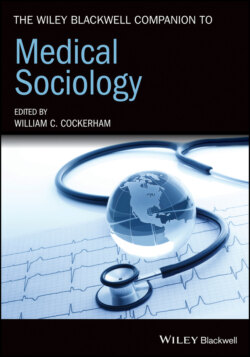Читать книгу The Wiley Blackwell Companion to Medical Sociology - Группа авторов - Страница 32
Social Constructionism
ОглавлениеSocial constructionism is based on the premise that social phenomena are not discovered but constructed through social interaction (Conrad and Barker 2010; Nowakowski and Sumerau 2019; Olafsdottir 2013; Turner 2004). That is, things are what they are defined as, even illness. In medical sociology, this perspective takes “the view that scientific knowledge and biological discourses about the body, health and illness are produced through subjective, historically determined human interests, and are subject to change and reinterpretation” (Gabe et al. 2004: 130). Illness is considered to be socially constructed in that the expression of symptoms is shaped by cultural and moral values, experienced through interaction with other people, and influenced by particular beliefs about what constitutes health and illness. The result is a transformation of physiological symptoms into a diagnosis which produces socially appropriate illness behavior and a modified social status, that of being sick. In medical sociology, one branch of the social constructionist approach is closely tied to Foucault and analyzes the body as a product of power and knowledge as previously discussed (Annandale 2014; Nettleton 2020). The other branch of social constructionism is based on the seminal work of Peter Berger and Thomas Luckmann in their book The Social Construction of Reality (1967), which is grounded in symbolic interaction and its emphasis on agency. This approach is also influenced by Eliot Freidson’s (1970a, 1970b) analysis of medical professionalization. Freidson examined how the medical profession monopolized power and authority in health matters to advance its own interests. Given the significant differences between Berger and Luckmann in comparison to Foucault, it is obvious that social constructionism lacks a single, unified doctrine. According to Turner (2004: 43), “These different types of constructionism present very different accounts of human agency and thus have different implications for an understanding of the relationship between patients, doctors, and disease entities.” The more social constructionist work is influenced by Berger and Luckmann, the more agency oriented it is; the closer to Foucault, the less agency has a role.
